James Scott Skinner
James Scott Skinner (1843 – 1927) is a legendary character and a key figure in Scottish traditional music. He took the art of Scottish fiddle music to a new height through his playing and his compositions.
Skinner is perhaps the most famous composer of Scottish fiddle music. His style of composing and playing can be characterised as virtuoso. He was certainly no rough and ready country fiddler and would have been a welcome guest in the most genteel of Edinburgh drawing rooms.
As well as being a prolific composer and performer Skinner was the author of 'A guide to bowing' (see the resources page) which can be considered as the definitive guide to the characteristic bowing techniques used in the East Coast style . The guide also provides an idea of what Skinner's character must have been like - the tone being somewhat pompous and opinionated.
J. Scott Skinner was born in Banchory on the 5th of August, 1843. His father was a prominent dancing master on Deeside and sadly died when J. Scott Skinner was only eighteen months old. When the future “Strathspey King” was about seven years of age his brother, Sandy, apprenticed him to the violin and ‘cello, and soon he was 'vamping' on the 'cello to accompany his bigger brother at local dances.
Skinner came into the acquaintance of Peter Milne and played with him around the district of Deeside. In 1855 he joined Dr. Mark’s troop of “Little Men,” at that time visiting Aberdeen, and accompanied them to Manchester where he underwent a six year apprenticeship in intensive musical training which included touring Britain performing with the 'little men'. Skinner played with this juvenile orchestra when it performed before Queen Victoria in 1858. He went on to study with Charles Rougier, a renowned French violinist. From there he returned to Aberdeen to play with Peter Milne and also began to hold dancing classes eventually teaching the tenants of Balmoral castle at the request of the Queen.
In 1879 Skinner held a series of concerts throughout Northeast Scotland in which he played a selection of classical and Scottish tunes. By all accounts he was a virtuoso player. In 1893 he toured the U.S.A. with Willie MacLennan, the renowned piper and dancer, but returned to Scotland following the sudden death Maclennan. Skinner went on to give many fine performances and toured extensively until overtaken by old age, dying in bed on the 17th of March, 1927.
In 2002, Temple Records released 'The Strathspey King' (Temple Records COMD2084), an album of original Scott Skinner recordings from the period 1905-1922 which were originally recorded on cylinder and early vinyl discs. First released in the 1970's by Topic Records, we have re-processed the original tracks with CEDAR processing equipment to remove as much of the background noise and hiss as possible without affecting the quality of the music.
As Bruce MacGregor says - "We'll never truly know what went on in Skinner's mind, or fully understand what drove him on; in many respects it doesn't really matter. What is clear is that his music possesses the unique elements of Scottish music; passion, vigour, heart and soul - and as long as those are the core elements of traditional music, then James Scott Skinner will always remain 'The King' "
A Skinner track also appears on 'The Portraits and The Music' (COMD2084), where, using multitrack recording technology, he is joined by a leading fiddler from a different generation, Battlefield Band's Alasdair White.
Scott Skinner website: www.abdn.ac.uk/scottskinner
 Temple Records
Temple Records